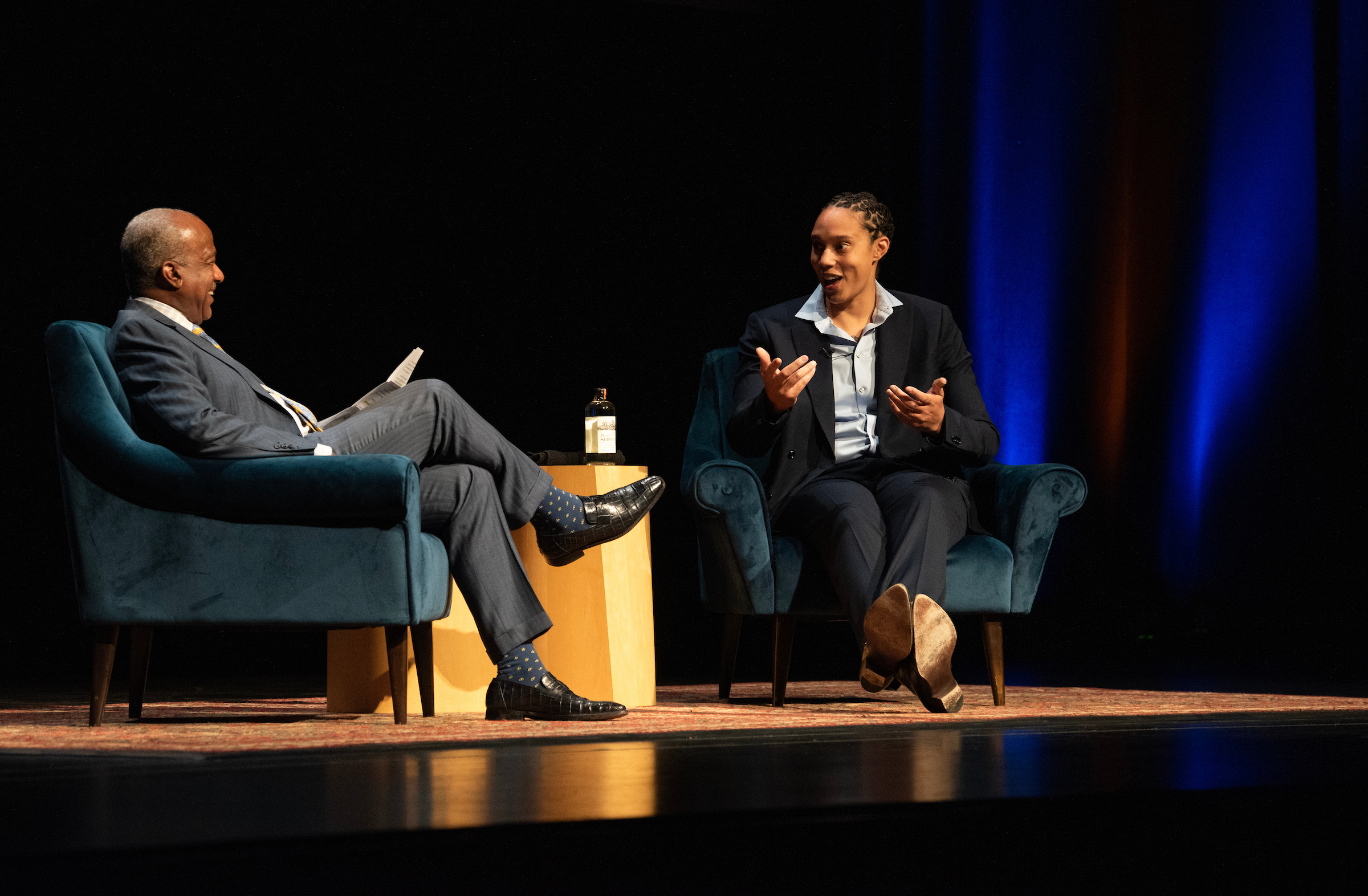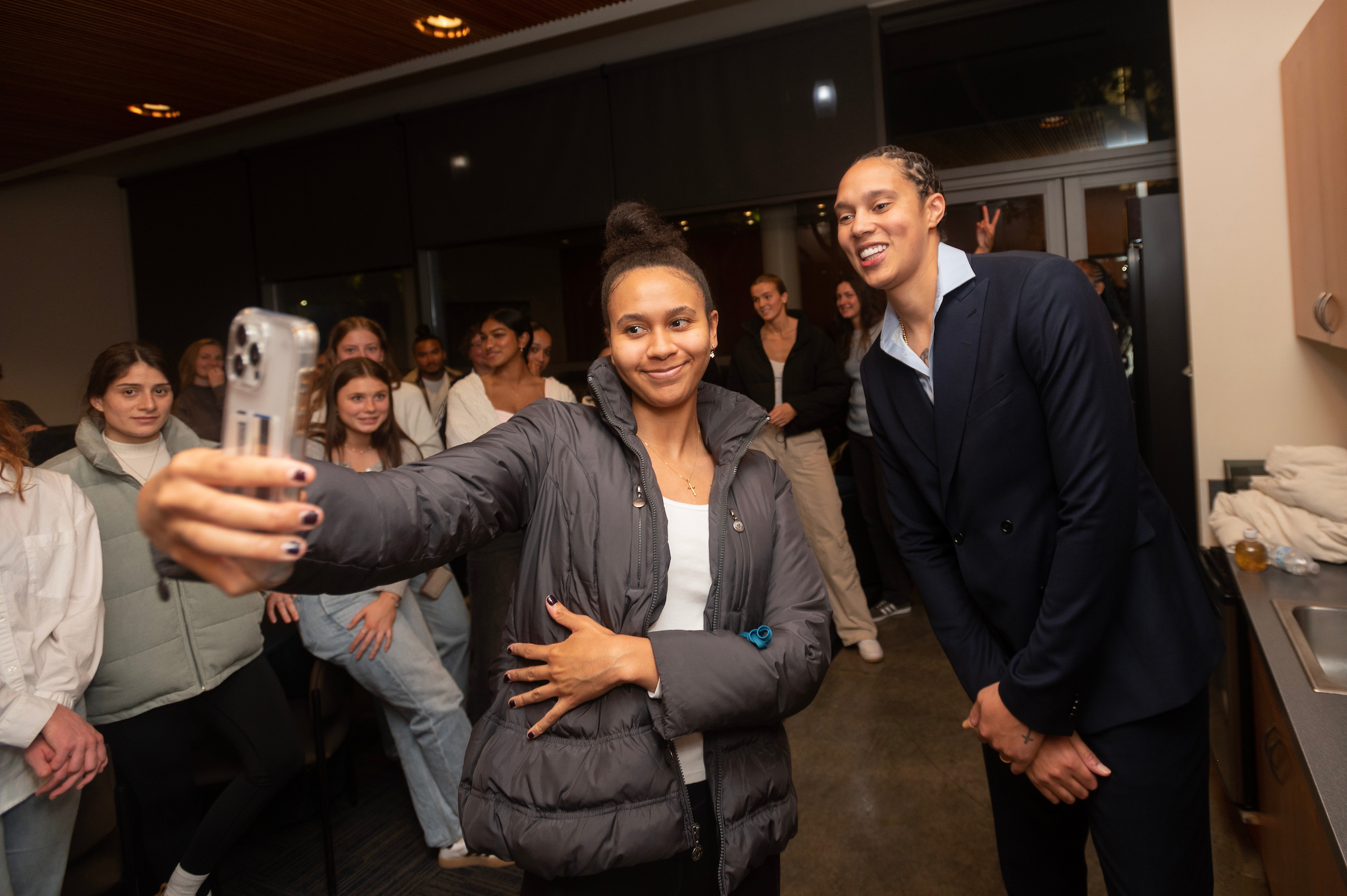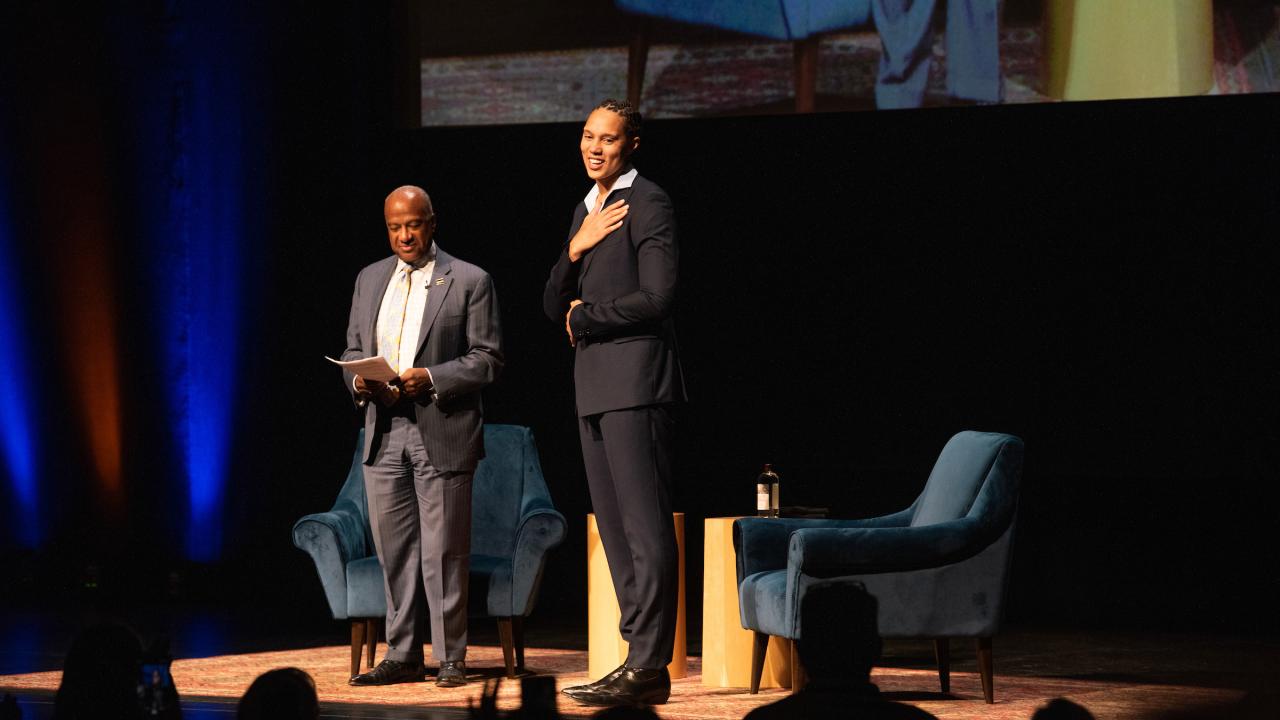Olympic gold medalist and WNBA all-star Brittney Griner received a standing ovation at the Mondavi Center Sunday (Nov. 3) after talking with Chancellor Gary S. May about her time in a Russian prison, her release via prisoner swap, her upbringing and more.
Her visit to campus was part of the Chancellor’s Colloquium Distinguished Speaker Series, and was in support of Griner's new book, Coming Home.
Chancellor May noted in his introduction that Griner’s book “details the campaign that finally brought her home. Her story is one of faith, survival and unbreakable bonds.”
In an engaging and thoughtful conversation, Griner described growing up in Houston, Texas, as a self-proclaimed “country girl” who considered her parents her heroes. Her father served as a police officer while her mother “had the hardest job” raising Griner and her siblings. Griner grew up idolizing not basketball players, but pro skateboarder Tony Hawk, dreaming of riding half pipes on a skateboard. She didn’t discover basketball until the ninth grade, when Griner “had to give up the short tights” of volleyball for hoops.
Though Griner initially thought she’d follow her dad’s footsteps by enlisting in the armed forces and eventually becoming a police officer, her athletic career took flight when she went viral in highschool uploading a video of herself slam dunking to her YouTube channel, generating over one million views. She graduated Baylor with a bachelor’s of science degree in education and joined the WNBA’s Phoenix Mercury, for whom she still plays, earning a WNBA championship in 2014.

On Coming Home
May and Griner then discussed Griner’s new book, Coming Home.
Earlier in the event, Jeremy Ganter, executive director of the Mondavi Center, had noted the many UC Davis student groups in attendance, including the Cross Cultural Center, LGBTQIA+ Resource Center, Center for African American Student Success, King Hall Black Law Student Association and the entire UC Davis women’s basketball team. They and the rest of the crowd fell silent as Griner detailed her daily experiences of her Russian nine-year prison sentence that began upon her arrest in February 2022 until her sentence was commuted upon her release in December 2022.
Griner described how she “couldn't tell this story [while] hurt” and needed time to psychologically heal from her incarceration before attempting to share her story. She described her living condition in Russian prisons as “filthy” with “blood stains on the sheets” given to prisoners, who were forced to watch and listen to state propaganda on TV monitors. Griner spent upwards of 23 hours of her day with a fellow inmate in a small cell that she said was barely bigger than the two small area rugs decorating the Jackson Hall stage. She also described later working in Russian penal colonies. Seeing a sunset as a free person led Griner to remember seeing it from behind prison bars.
Still, Griner noted that when she was detained, she was traveling to Russia to play and fulfill her commitment to her Russian league teammates at UMMC Ekaterinburg, and how the team had “provided for my family to live a comfortable life.”
A crowdsourced Q&A session followed, with attendees able to submit questions to Griner digitally. Questions included the growth and future of the WNBA and the new domestic league Unrivaled, a player-owned 3-on-3 league enabling women to stay in-market and not play overseas during the WNBA offseason. Griner identified her toughest opponent as the now-retired Sylvia Fowles, and shared lessons she learned from teammate and WNBA icon, Diana Taurasi, on how to balance being a professional athlete with life at home with her wife and newborn son. She also addressed the pressures of being a highly visible queer athlete in the public eye and encouraged the captive audience to exercise their civil right to vote in this year’s election.
Amidst her many experiences and challenges, Griner’s message to the audience, particularly students, was clear.
“Don’t change yourself for anyone,” Griner said. “Be your authentic self.”

Media Resources
José Vadi is a writer for Dateline UC Davis, and can be reached by email.
